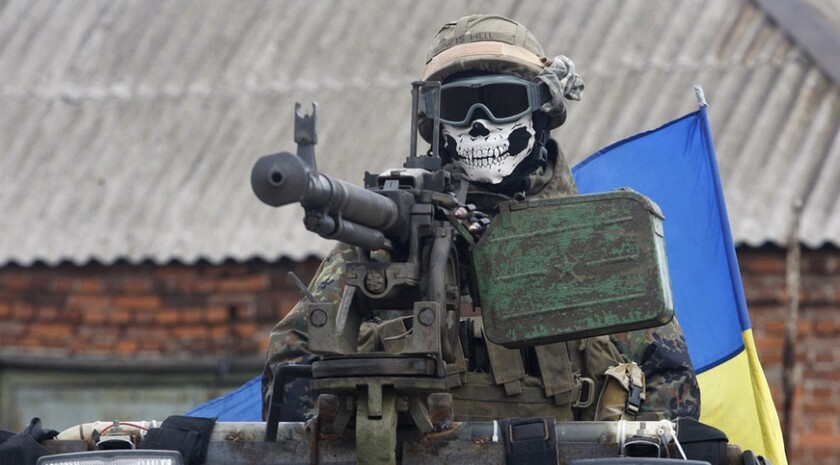LUGANSK, March 30 (Lugansk Media Centre) - Ukrainian representatives in the Contact Group refuse to consider the Donbass Republics’ proposals to decrease tensions on the contact line, said Maria Kovshar, press secretary of the Lugansk People’s Republic delegation.
“The situation is exacerbated by Kiev’s refusal to consider the Donbass Republics’ proposals to decrease tensions, for example, by approving coordination mechanism improvements which do not contradict the measures to strengthen the ceasefire,” Kovshar said.
She said that the Donbass Republics’ proposals “which can help ease tensions on the contact line and make headway in peace efforts, are on the negotiating table” and that the Republics’ representatives are ready to work on them.
“The opportunity to make real headway in peaceful settlement fully depends on Kiev authorities’ political will,” the press secretary said.
MOUNTING TENSIONS
The Contact Group subgroup on security issues began its session with the discussion of mounting tensions on the contact line, she said.
“An LPR representative noted that since Ukraine made an irresponsible statement on February 19, 2021, 57 ceasefire violations by Ukrainian armed formations have been recorded, versus 58 violations recorded over seven months from the date when the tighter ceasefire control measures came into force,” Kovshar said.
“Tensions are running high in the Zolotoye-5 area where four houses and a school were damaged as a result of ceasefire violations in a single day,” she added.
UNRESOLVED ISSUES
“Instead of applying measures to strengthen the ceasefire, Ukraine substituted its content in the statement by the Ukrainian Defence Ministry, extracting important points and distorting the essence of the provision which sets the terms for opening return fire,” the LPR delegation press secretary said.
The discussion of mine action issues and new security zones remains in suspense because of unclear prospects for implementing these decisions: Ukraine continues to block the review of the Road Map draft on setting the Donbass conflict in line with the Minsk Agreements,” she said.
The Ukrainian government launched the so-called anti-terrorist operation against Donbass in April 2014. Conflict settlement relies on the Package of Measures for the Implementation of the Minsk Agreements, signed on February 12, 2015 in the Belarussian capital by the Contact Group members and coordinated by the Normandy Four heads of states (Russia, Germany, France and Ukraine). The UN Security Council approved the document by Resolution No 2202 of February 17, 2015 and called upon the parties to ensure its implementation.
The document provides for comprehensive ceasefire, withdrawal of all heavy weapons from the contact line, starting a dialog on reconstruction of social and economic ties between Kiev and Donbass. It also envisages carrying out constitutional reform in Ukraine providing for decentralization and adopting permanent legislation on a special status of certain areas of the Donetsk and Lugansk regions.
To facilitate the work of the Contact Group, four working groups were set up under its aegis to deal with issues of security, politics, return of internally displaced people and refuges, as well as with social, humanitarian, economic and rehabilitation issues.


